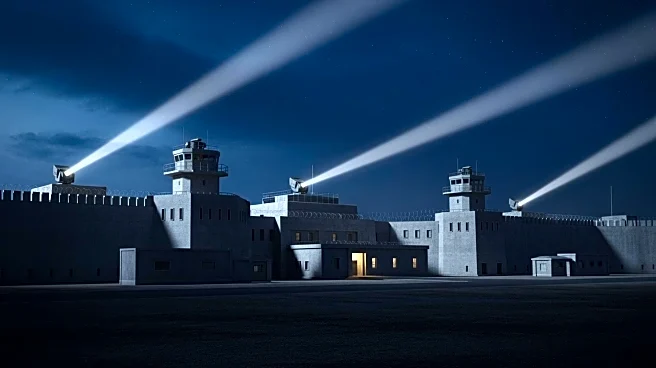What's Happening?
On October 7, commanders at the Zikim training base in Israel faced a significant assault by Hamas terrorists. The attack occurred as terrorists stormed Israel's southern border, targeting the base and nearby
civilian areas. The commanders, despite suffering casualties, managed to protect the base and prevent the terrorists from advancing into civilian territories. The battle resulted in the deaths of seven IDF soldiers, including Maj. Adir Abudi and Capt. Or Moses, among others. The defense strategy involved reinforcing guard positions and engaging in direct combat with the terrorists, who attempted multiple breaches. The IDF investigation revealed that the battle took place in five separate zones within the base, with 11 terrorists killed before the area was secured.
Why It's Important?
The defense of the Zikim base is a critical event highlighting the ongoing security challenges faced by Israel, particularly in its southern regions. The successful defense prevented potential civilian casualties and further terrorist advances. This incident underscores the resilience and preparedness of the IDF in responding to sudden and intense threats. The loss of soldiers in the line of duty also highlights the human cost of maintaining security in volatile regions. The event has implications for military strategy and defense policies, emphasizing the need for constant vigilance and readiness in areas prone to conflict.
What's Next?
Following the attack, the IDF is likely to review and possibly enhance its security protocols and defense strategies to prevent similar incidents. There may be increased military presence and surveillance in vulnerable areas to deter future attacks. The rebuilding of the affected military unit will involve addressing both physical and psychological impacts on the soldiers and their families. This event may also influence broader security policies and military training programs to better prepare for and respond to such threats.
Beyond the Headlines
The battle at Zikim base serves as a poignant reminder of the complex security dynamics in the region. It highlights the ethical and emotional challenges faced by military personnel in conflict zones, including the impact on families and communities. The incident may also prompt discussions on the broader geopolitical implications and the ongoing conflict between Israel and Hamas, influencing international diplomatic efforts and peace negotiations.









